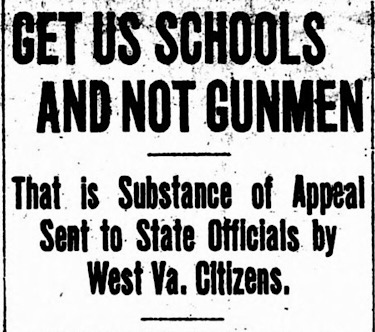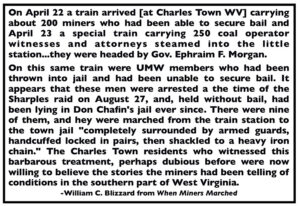 —————
—————
Hellraisers Journal – Tuesday November 14, 1922
Charles Town, West Virginia – Keeney Awaits Ruling Regarding Change of Venue
From The Labor World of November 11, 1922:
Accessory to Murder.
Keeney had been called to trial on a charge of accessory to a murder-the charge growing out of the attempted march of union miners into Logan county several months ago in protest of the feudal conditions in its coal fields.
Efforts of the prosecution to call William Blizzard to trial on the same charge, after Keeney had been granted a change of venue, brought a ruling from the court that further proceedings would be suspended until after the Court of Appeals of West Virginia has passed upon the action of the court here in granting a new change of venue in a case which was originally removed here from Logan county. This ruling is expected in about fifteen days. While granting the change of venue, the court declined to issue an injunction against the coal interests of the state from participating in the prosecution and putting up the money for conducting the trials.
First Defeat.
Keeney’s victory brings to the coal interests their big defeat in the effort to oust the miners’ union from the state. Incidentally, it exposes in a court of record the activities of the coal interests in using the prosecuting power of the state to fight the miners’ union.
Attorneys for the prosecution bitterly contested the motion of Keeney for a change in venue. It was claimed that one change in venue is all that the law allows, and that Keeney was enjoying that in having his trial removed to Jefferson county from Logan county. It was claimed that the court did not have the power to grant a second change, and maintained that the allegations of prejudice in Jefferson county were unfounded.
About 100 affidavits were offered from residents of Jefferson county, where three convictions had already taken place in the “treason” cases, that no fixed prejudice exists in the county, and that Keeney could “get a fair jury.” The court ruled these affidavits were too general in character to be of value.
Sought to Stop Flood of Money.
Keeney’s motion for a change in venue was quickly followed by an application for an injunction to prohibit the Logan Coal Operators’ Association and 77 coal corporations from contributing money to finance the prosecution of the miners’ union officials. This application was later denied by Judge Woods.

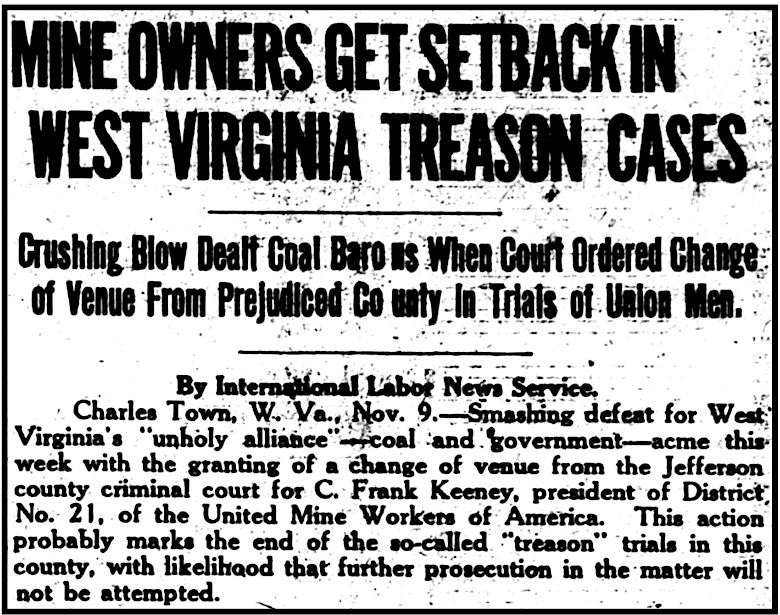
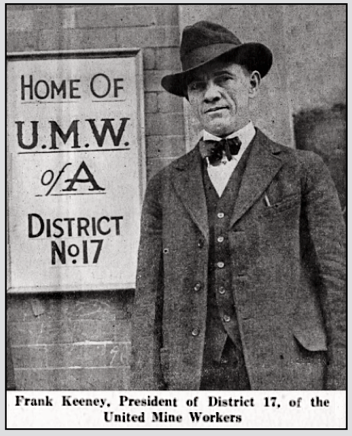
 —————
—————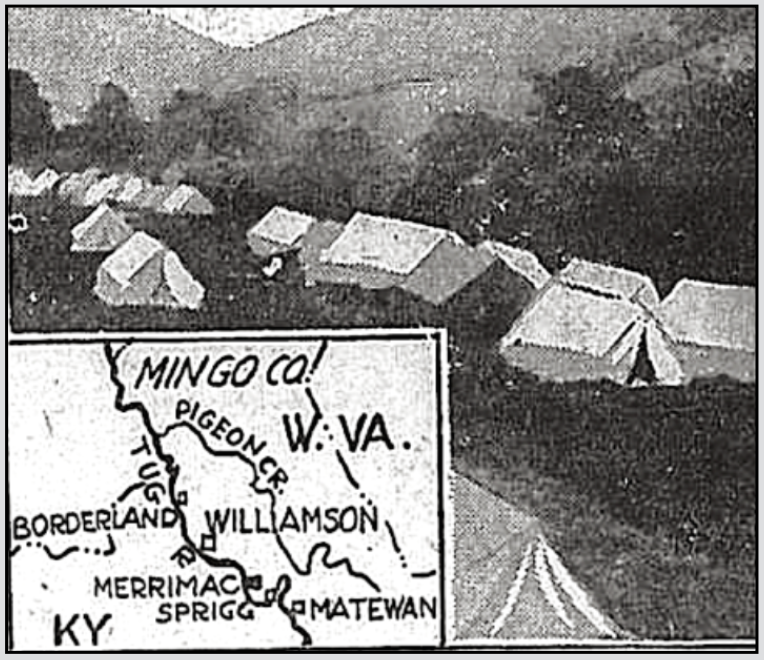
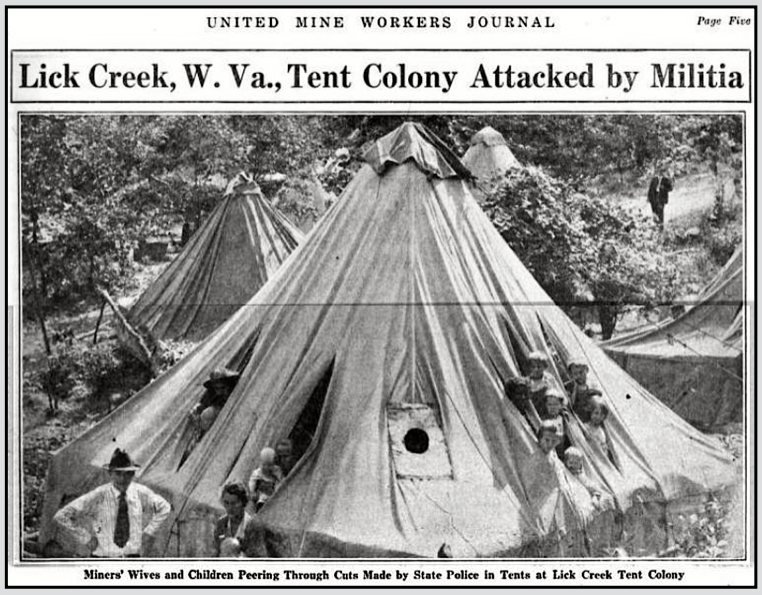
 —————
—————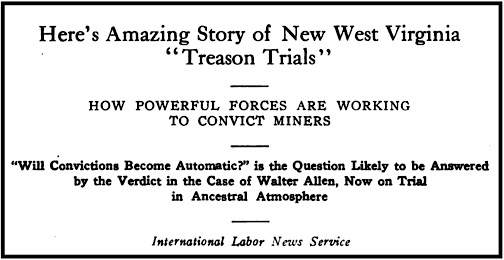
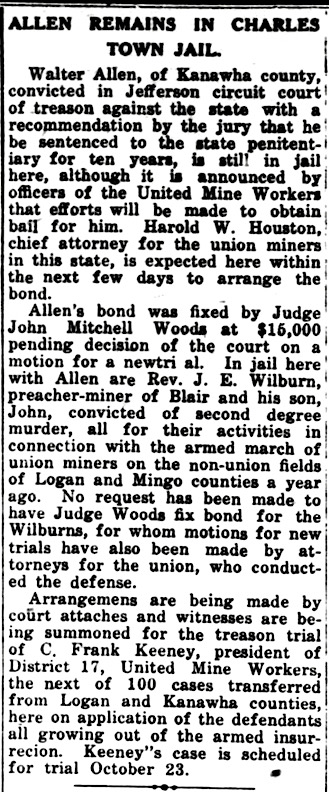
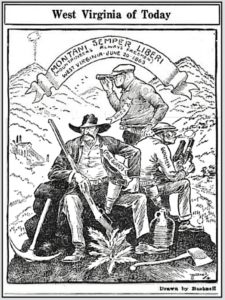
 —————
—————
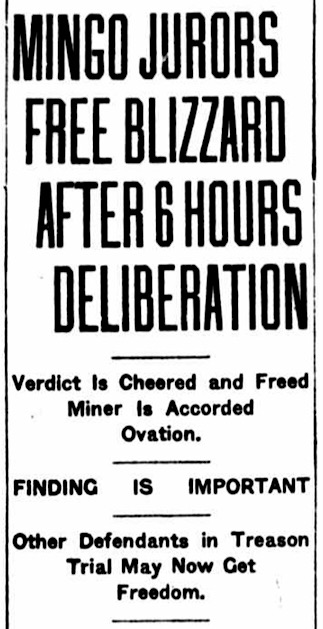
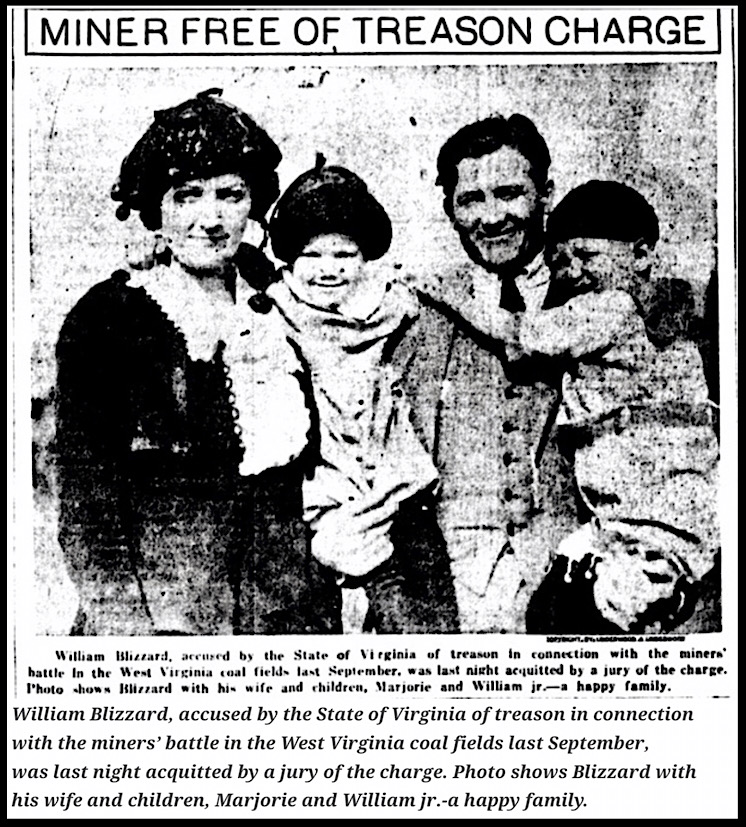

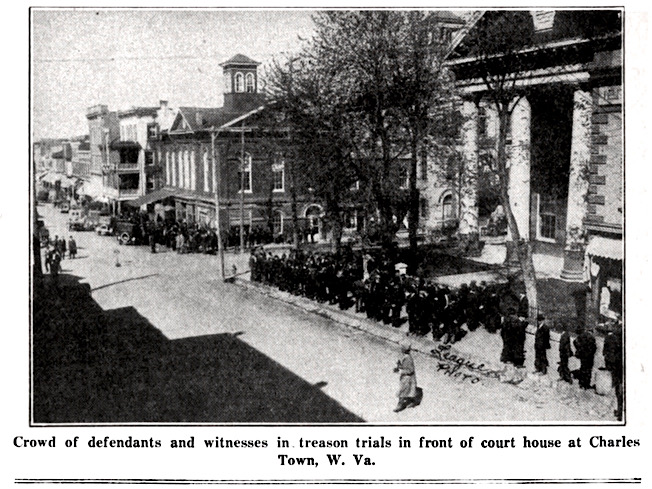
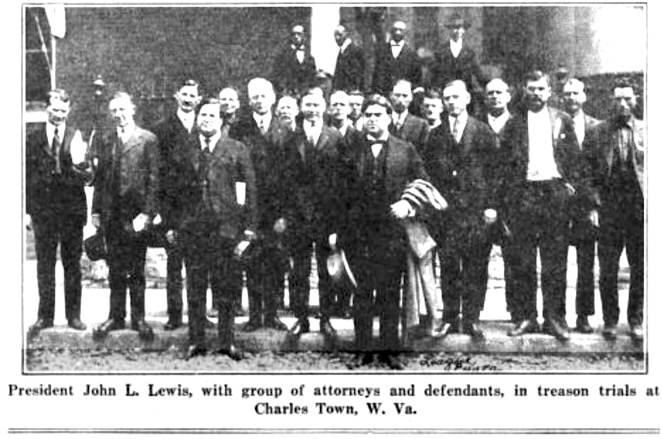 —–
—–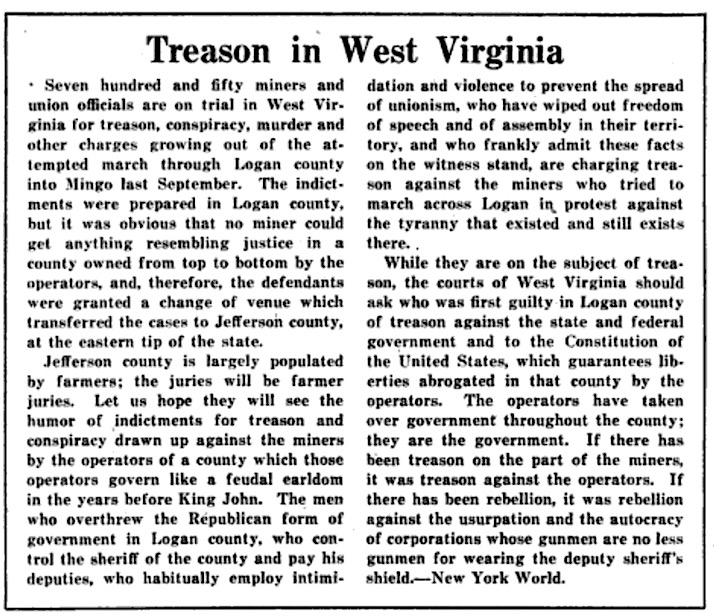
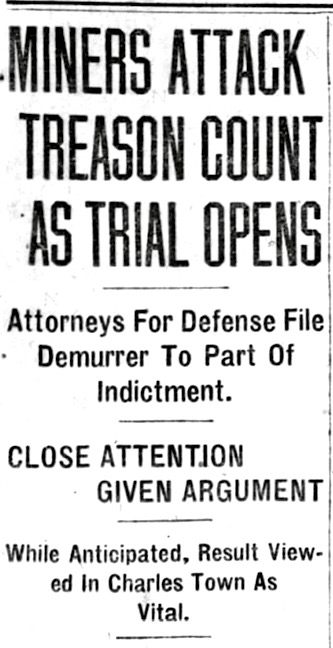
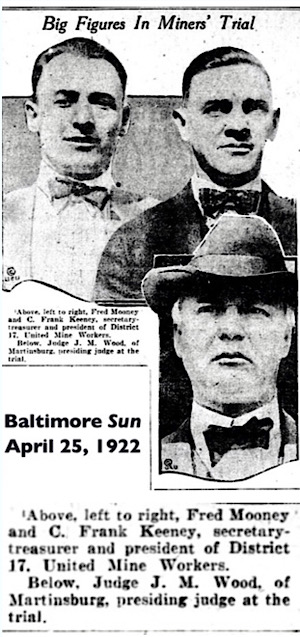
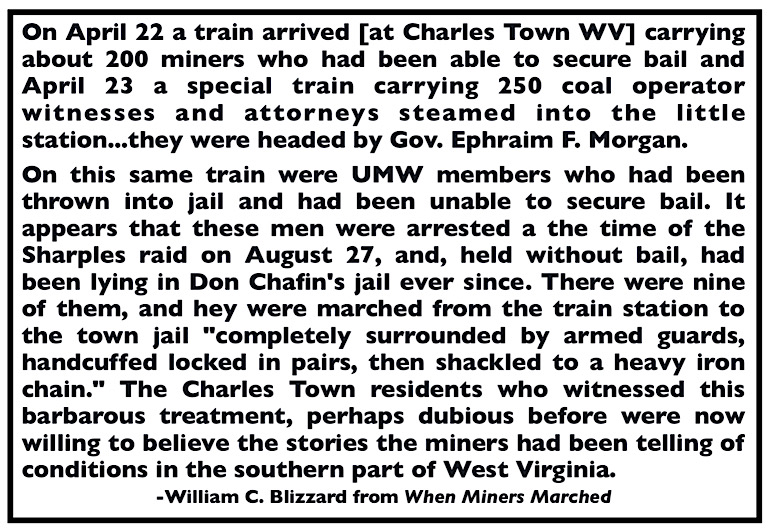 —————
—————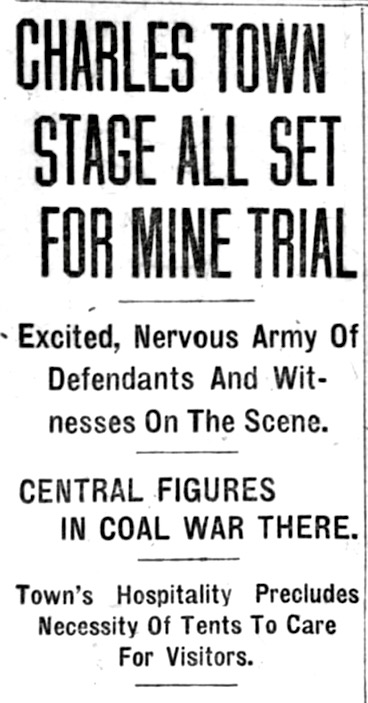
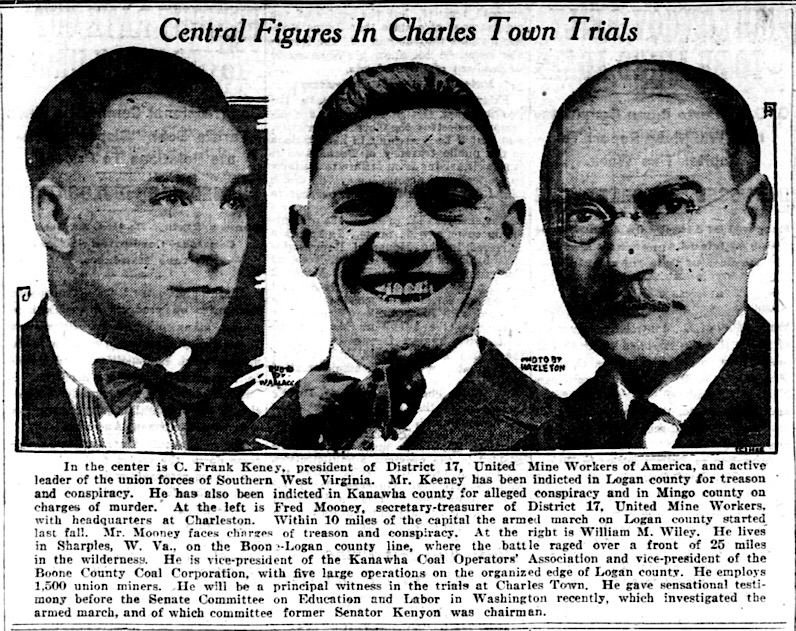
 ————————-
————————- ———————-
———————-